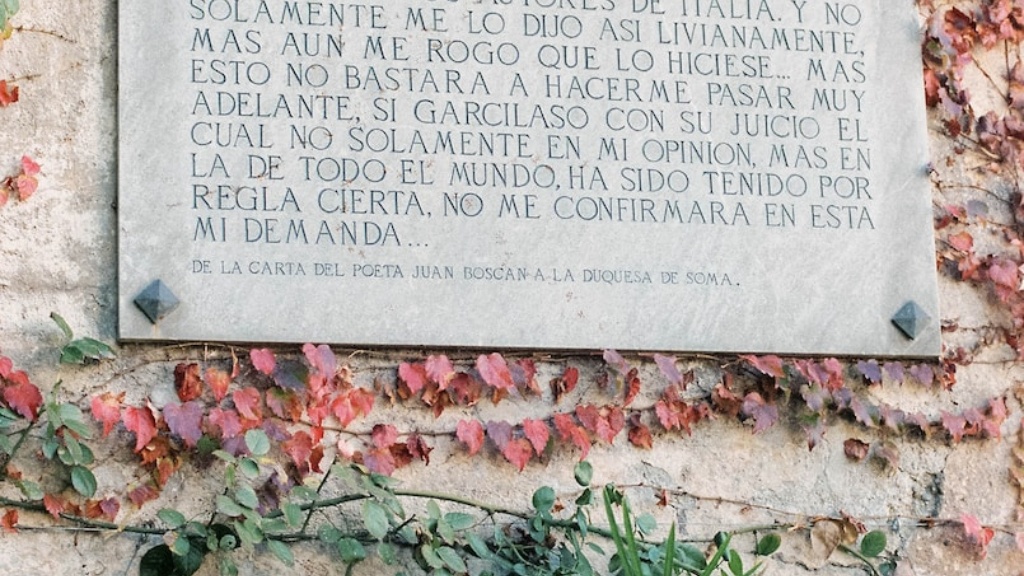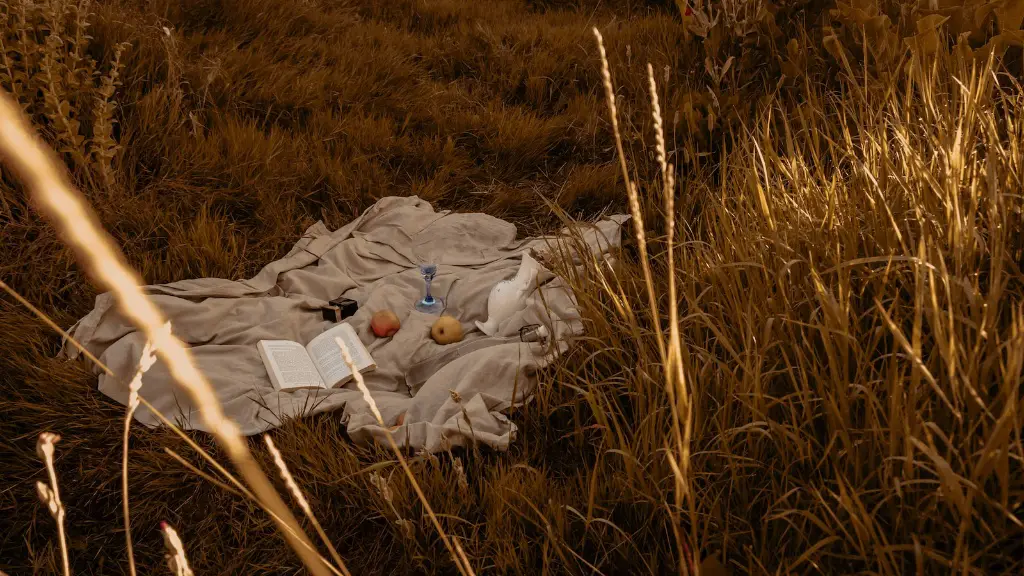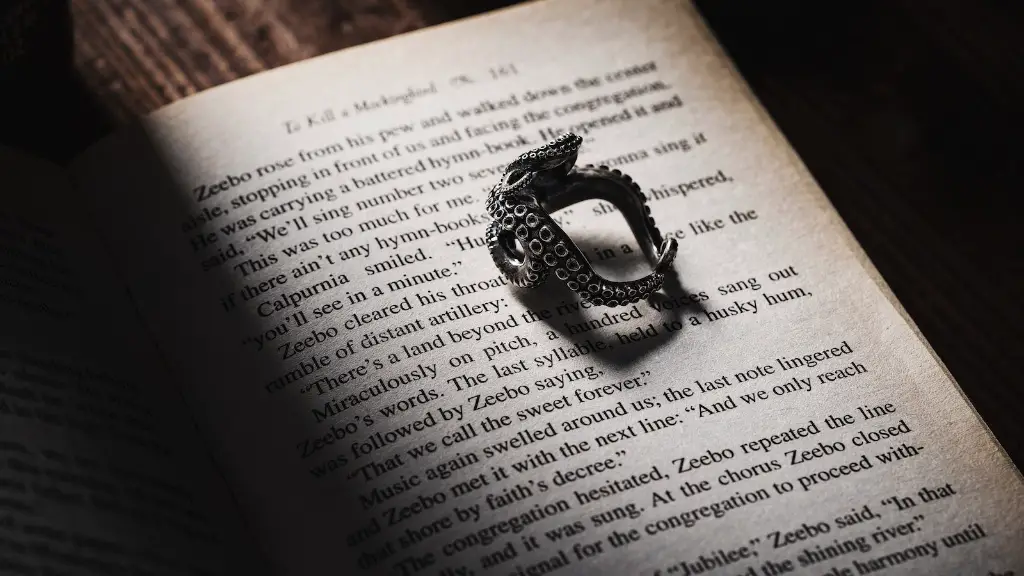William Blake was an English poet and painter who is now considered one of the most important figures of the Romantic Age. Blake was largely self-taught and developed his own unique style of painting and engraving. He is best known for his paintings of mythological and Biblical scenes, as well as his book of poems, Songs of Innocence and of Experience.
Blake’s mythology was largely drawn from his own imagination, and he claimed to have visions that he would then paint or engrave. Many of his works include references to classical mythology, as well as Christian and Pagan symbolism. It is clear that Blake believed in the power of his mythology, and he hoped that it would inspire others to see the world in new and transformative ways.
According to William Blake’s biography, he did indeed believe in his mythology and saw it as a way to express his beliefs about the world and the divine. He often spoke about his visions and experiences with angels and other supernatural beings, which helped him to create his unique and compelling artwork. While some scholars question the veracity of Blake’s claims, there is no doubt that he sincerely believed in his own mythology and used it as a foundation for his art.
What is William Blake’s mythology?
The prophetic books of William Blake contain an invented mythology in which he encoded his spiritual and political ideas into a prophecy for a new age. This desire to recreate the cosmos is the heart of his work and his psychology. Blake was influenced by the Bible, especially the Book of Revelation, as well as other apocalypses and eschatologies. He believed that humanity was in the process of creating a new, more perfect world, and that this process could be hastened by art and imagination.
Blake was a committed Christian who was hostile to the Church of England and almost all forms of organised religion. However, he was influenced by the ideals and ambitions of the French and American revolutions.
Did William Blake create his own mythology
Blake was a unique poet in that he created his own mythology, populated by beings that he either invented or re-interpreted. This made his poetry more interesting and original than that of other poets who relied on characters from the Bible or Greek and Roman mythology.
Blake was a religious seeker but not a joiner. He was profoundly influenced by some of the ideas of Swedish theologian Emanuel Swedenborg, and in April 1789 he attended the general conference of the New Church (which had been recently founded by followers of Swedenborg) in London. Blake was impressed by the New Church’s emphasis on the inner life and the personal experience of God, but he did not agree with its doctrines and eventually broke with the group.
What does Blake’s poem reveal about God?
This is a religious poem that speaks to the beauty of God’s creation. In it, a child addresses a lamb, asking it how it came to exist. The child then affirms that all existence comes from God. In the humble, gentle figure of the lamb, the speaker sees the beautiful evidence of God’s work. This poem is a reminder that even the simplest things in life are a miracle, and that we should take time to appreciate the wonder of God’s creation.
Blake was a highly original thinker who created his own mythology and his own human-centered religion. Rather than relying on the salvation of Christ, Blake believed that each person could save themselves through their own imagination. This allowed him to engage in right-thinking and proper actions, and ultimately become his own Christ.
What was the spirituality of William Blake?
Blake was ahead of his time in many ways, and his views on the spiritual world were far ahead of most people’s. He believed that the best way to preserve the earth was to be open to the divine, and to the gods and psychic beings that visited him often. He was confident that discounting the world beyond the reality in front of us was discounting a part of the self. His views are even more relevant today than they were in his time, and his message is as important as ever.
William Blake was an English poet, painter, and printmaker. He is considered a seminal figure in the Romantic Movement and is often referred to as one of the greatest artists of the nineteenth century. Blake’s visionary belief in the afterlife was so strong that he faced his last day without fear. The last shilling he spent was on a pencil so that he could keep drawing.
What was William Blake’s philosophy
Blake’s ethics are based on the idea that the true self is instinctual and that reason is the source of morality and religion, which serve to fragment and oppress the true self. The goal of liberation is to overcome the false self and to achieve a symbiotic unity with others and with the world.
The Greek myths are some of the oldest stories in the world, and they continue to be popular even today. The earliest known versions of these myths date back more than 2,700 years, appearing in written form in the works of the Greek poets Homer and Hesiod. These stories of gods, heroes and monsters have been told and retold around the world, and they continue to inspire new generations of storytellers.
Who created the universe in mythology?
In the Orphic creation myth, it is Phanes, not Chaos, that is the creator of the world. Phanes emerged from the cosmic egg and gave birth to Nyx and Gaia. Uranus, etc. were born from Gaia.
Lord Brahma is an important figure in Hinduism and is considered to be the creator of the universe. He is often depicted holding a book or a spear, and he is sometimes shown with four heads. Lord Brahma is an important god in the Hindu pantheon, and he is worshipped by Hindus all over the world.
Did William Blake believe in angels
William Blake was a mystic who claimed to see and speak to angels and departed saints on a regular basis. In 1765, at age eight, William Blake had his first vision of angels while walking on Peckham Rye, a park in Greater London. Since then, he continued to have similar religious experiences throughout his life, which included speaking with angels and seeing visions of the afterlife. For Blake, these mystical experiences were a key part of his religious beliefs and helped him to understand the nature of God and the universe.
That he knew his Bible intimately almost goes without saying. His greatest pleasure was derived from the Bible,–a work ever in his hand, and which he often assiduously consulted in several languages. He was a most fervent admirer of the Bible, and intimately acquainted with all its beauties. (JT)
What did William Blake think of slavery?
William Blake was a prolific artist and poet who was also very outspoken in his views on slavery and abolition. He created several powerful images and poems in support of these causes, including “The Little Black Boy” which was written in 1788, just a year after the Committee for the Effecting of the Abolition of the Slave Trade was founded. Blake’s work was hugely influential in raising awareness of the horrors of slavery and in helping to build support for its eventual abolition.
The speaker of the poem emphasizes that people are good because they embody the four virtues of God: Mercy, Pity, Peace, and Love. Though people may not physically resemble God, they display his goodness through their actions. This goodness is what makes people special and unique.
Why was Blake critical of the Church
Blake’s criticisms of priests highlight his frustration with the Church’s mistrust in people’s abilities to worship the “right” God. The Christian dogma heavily features the idea of opposites: Heaven and Hell, God and Satan, Adam and Eve, etc. Blake was likely influenced by these ideas when he developed his own views on religion. He believed that people were capable of worshiping any God they wanted, as long as they did so with sincerity. However, the Church authorities didn’t trust people to make their own decisions about their spirituality. Instead, they insisted on dictating what was “right” and “wrong.” This caused a lot of tension between Blake and the Church.
Blake was highly critical of the Church and its policies towards sinners and its insistence on doctrine. He felt that the Church was lacking in compassion and forgiveness and that all it did was preach stern duty and passive obedience to the ‘stony law’.
Warp Up
William Blake was a mystic who believed in the spiritual truth of his mythology.
Overall, it is difficult to say definitively what William Blake’s thoughts were on his own mythology. However, based on his writings, it seems that he at least partially believed in it – otherwise, he wouldn’t have spent so much time and effort creating it. Additionally, many of the beings and concepts in his mythology seem to be inspired by real-life people and events, which could also suggest that he saw some truth in it. Ultimately, we may never know exactly what Blake thought about his mythology, but it remains a fascinating and intricate part of his work nonetheless.





